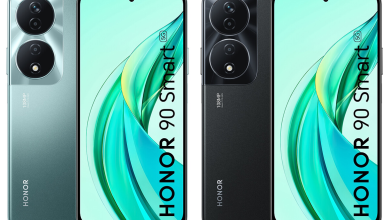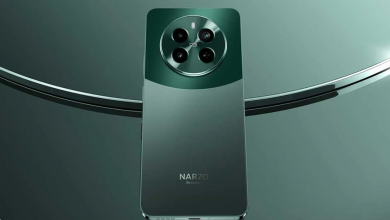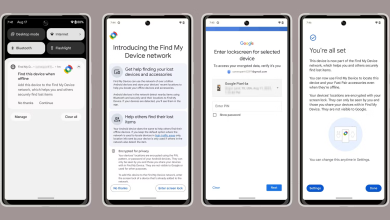Google Tensor G3 Falls Behind Exynos 2200 and Snapdragon 8 Gen 1 in Mid-Core and Big-Core Benchmarks
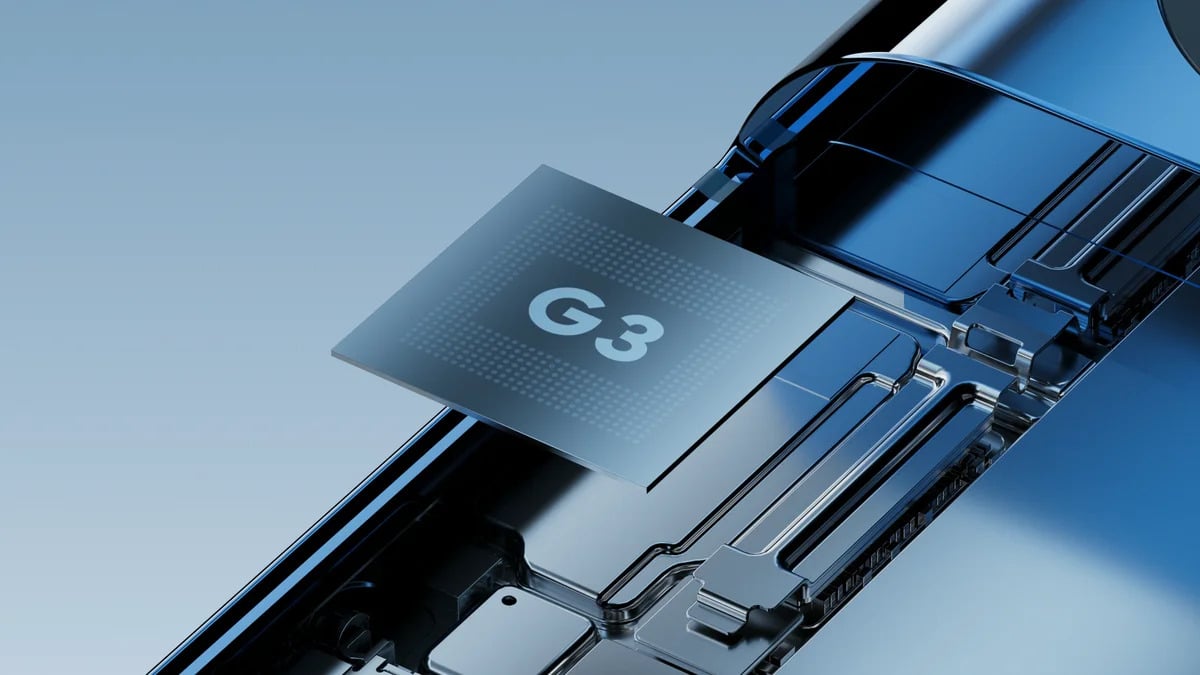
When it comes to flagship Android smartphone SoCs, semiconductor companies, namely Qualcomm and MediaTek, have upped the ante with their newest Snapdragon 8 Gen 3 and Dimensity 9300 chipsets, respectively. However, within the Android space, there is one manufacturer that has had trouble catching up: Tensor.
Google’s philosophy for smartphone SoCs has been pretty vague in the sense that they refuse to use third-party chipsets in the Pixel lineup while simultaneously positioning the phone as part of the much more capable lineup within the Android smartphone space. This year, they even increased the price on both of their newest Pixel 8 devices.
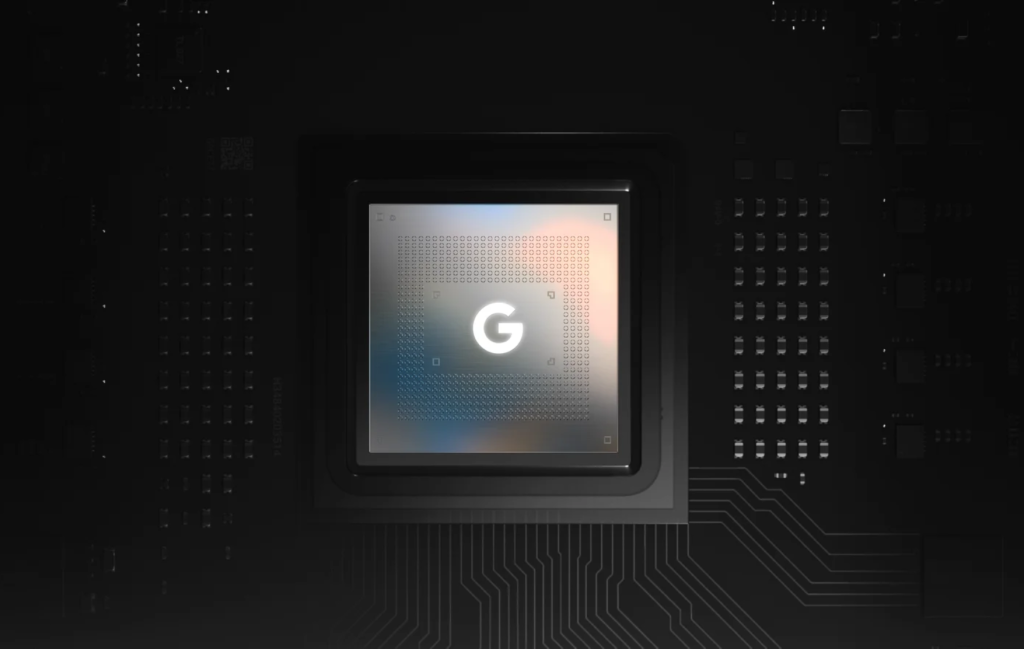
Google Tensor has been widely criticised, but to put these numbers into perspective, here’s how much it lags behind the competition. Using SPECint06, analysing the single-threaded performance for both the SOCs, @Golden_Reviewer posted the results on X and they were pretty surprising to say the least.
During the Mid Core testing, the Snapdragon 8 Gen 3’s Cortex A720 achieved a respectable score of 45.62, followed by the 8 Gen 2’s Cortex A715 with a score of 39.36. However, the next phone in the list that uses A715 mid-cores, the Tensor G3, came in 10th place, with contenders such as Exynos 2200, Snapdragon 8 Gen 1, and even the Snapdragon 888 (with Cortex A78) outperforming it in the race.

If that weren’t enough, the efficiency of these cores within the Tensor wasn’t anything to write home about either. Among the 15 SoCs that were tested, Tensor came in 14th. Admittedly, the list does include some mediocre, mid-range SoCs, but the Tensor lags far too much behind its competitors. For context, the 8 Gen 3 is approximately 56% more efficient than the Tensor G3.
Part of the problem here is that Google chose to go with last year’s Cortex A715 mid-cores as part of its chipset configuration, instead of the newer Cortex A720s. However, even with similarly specced phones, the Tensor seems to be out to pasture and struggling to keep up.
The big-core tests show no significant differences either, with the Cortex-X4 comfortably securing the top spot in the 8 Gen 3, followed by the 8+ Gen 2 with Cortex-X3. However, the Tensor ranks 9th in the list, being outperformed by the Exynos 2200 and Dimensity 9000, both of which house the older Cortex-X2 cores from 2021.
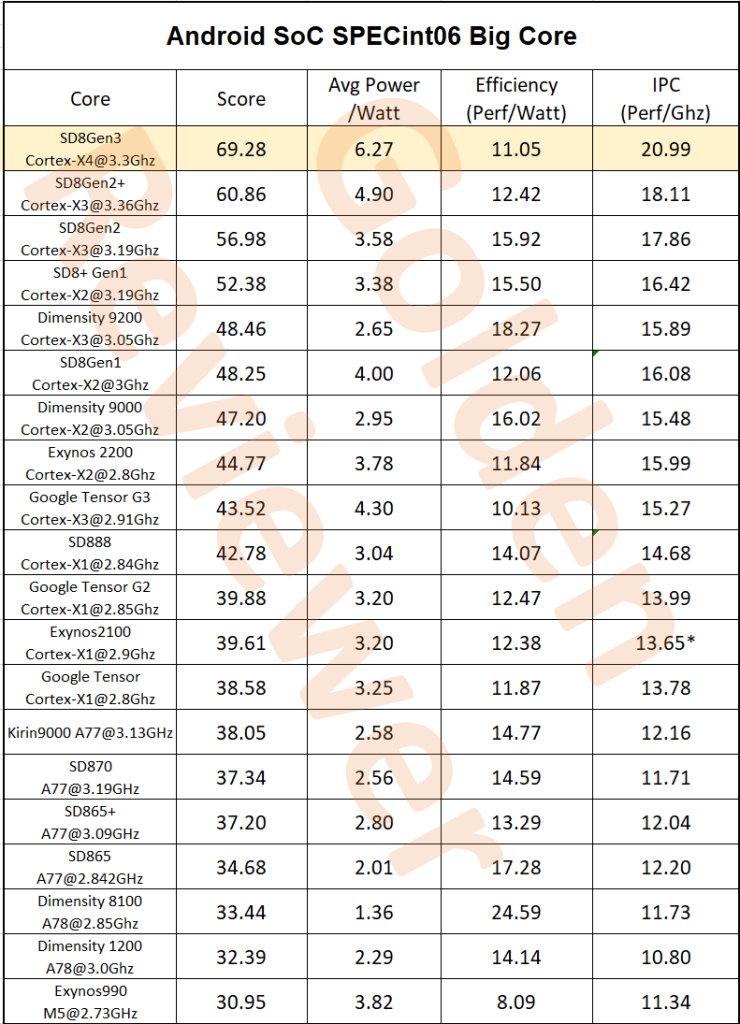
While the software on the Pixels more than makes up for their lack of raw performance, this trend of trailing behind the pack may not continue for long. The Tensor G4 is reported to be a minor update over the Tensor G3, meaning that next year would be no different. However, Google plans to go fully custom by 2025, and the Tensor G5, slated to be manufactured using TSMC’s N3 process node and would be a huge upgrade from its predecessors, possibly putting it on-par with the industry leaders in terms of raw performance.
This is all we know for now, but rest assured that we will keep you updated as new information becomes available.
via: Golden Reviewer

